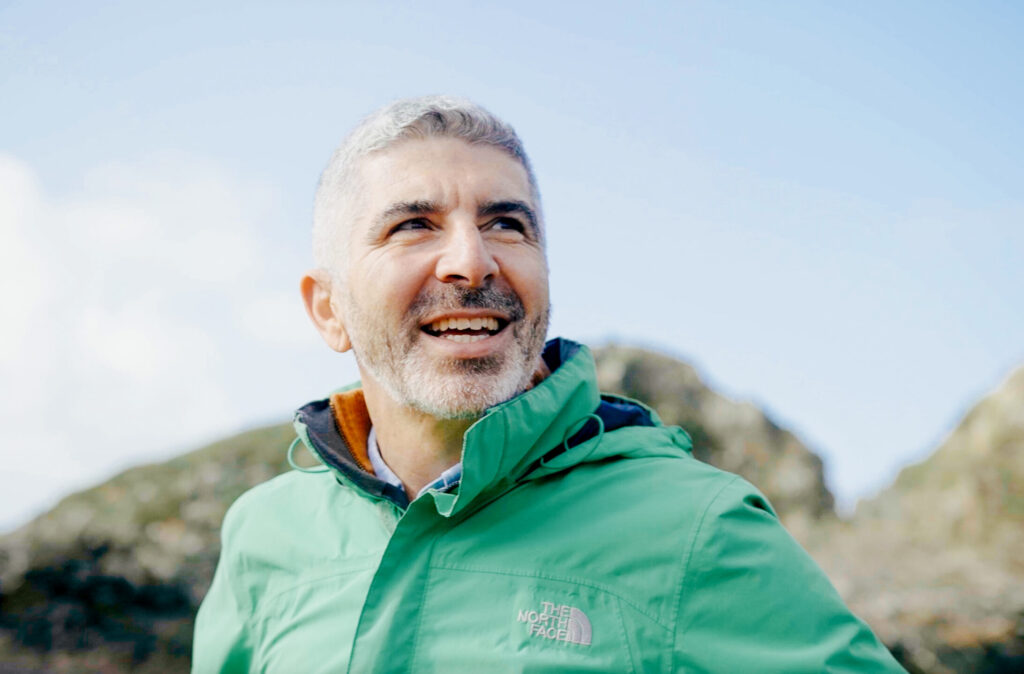Derek Walker envisages what a future infrastructure for Wales could look like if it harnessed the power of the Well-being of Future Generations Act.
What if we could make sure that everything we build today, contributes to a better life for people tomorrow?
We can. We need to start by imagining the kind of future we want – for us, for our children, for our children’s children.
The infrastructure we create in Cymru today will still be in use in 2100 – that’s just 76 years – not that long in the life of a school building, power lines, train stations. It’s up to us to ensure it serves people, and planet, well.
So, what kind of future are we building it for? Is it a future where we continue the patterns and paths of the past and present? Or is it a future that is different to the reality we are experiencing now?
To imagine that we need to step out of the present and ask ourselves ‘what if?’ What if we choose a future driven by well-being? One where economic growth didn’t come at the detriment to our happiness and sense of belonging?
What if we made the Well-being of Future Generations Act the guiding force behind everything we do, so this better life starts becoming a reality, today?
What if in 2100 we calculated and valued the true cost of our infrastructure – including the cost it has on our climate, biodiversity, equality and society?
What if, enabled by technological advances and free and reliable digital infrastructure, many of us were no longer living in big cities, but were able to live in communities, spreading out and regenerating abandoned or underpopulated parts of Cymru?
What if we had community ownership and control over a clean and renewable energy supply, and utilised the power of nature – wind, water and sun – in an efficient way, which helps enables everyone to be warm, safe and connected?
What if in 2100 we didn’t use one-tonne metal boxes to move around – and instead had access to fast, reliable, accessible, and free public transportation system, which could get us anywhere in Cymru and beyond?
What if we deprioritised roads and freed up space for nature, for housing, for food and for forest restoration? What if we had forests in cities? What if we filled Wales with trees – to help us breathe cleaner air, provide food, improve biodiversity, cool down rising temperatures, reduce carbon, and prevent flooding?
What if we had adaptable and carbon positive housing? What if housing was a human right?
Robust debate and agenda-setting research.
Support Wales’ leading independent think tank.
What if all of our infrastructure was green?
What if, rather than fill them up with empty office buildings, we turned city centres into cultural havens – spaces for our arts, heritage, music and creativity? What if all of us used such spaces in our communities to explore our imaginations and connect with each other and with the world?
What if we used atmospheric water harvesters to ensure we all have access to clean water?
What if we used our buildings to grow local, healthy food?
What if we only built infrastructure that can keep us active and healthy? What if we were able to access community healthcare all around us?
What if everything we built was created with accessibility in mind and ready for an older population?
We have a law in Wales that means we must act today for a better tomorrow – protecting people now and those born in the future, so they have what they need to thrive for their whole lives and leave behind a liveable planet.
What if we made the Well-being of Future Generations Act the guiding force behind everything we do, so this better life starts becoming a reality, today? Cymru Can. We just have to use our imagination.
This essay is part of a series commissioned in collaboration with the National Infrastructure for Wales.






